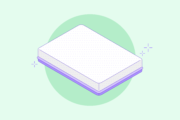What is GOTS (Global Organic Textile Standard)?

- GOTS (Global Organic Textile Standard) provides a thorough evaluation of the organic status of textiles, covering not only the final product but also manufacturing, labeling, packaging, and trading processes. The certification encompasses social, environmental, toxicity, technical quality, and manufacturing process criteria.
- GOTS incorporates a Credible Assurance System to track toxicity levels, ensuring that chemical inputs stay within safe ranges. The system employs residue testing on all organic textile products throughout the supply chain to prevent negative health impacts and environmental damage.
- GOTS offers two label grades, “Organic” and “Organic-in Conversion,” providing clarity to consumers. Products labeled as “Organic” must contain at least 95 percent organic natural fibers, while “Organic-in Conversion” is assigned to products with 70 to 94 percent organic materials.
Global Organic Textile Standard (GOTS) is a worldwide leading textile standard that evaluates the organic status of textiles, and it makes shopping organic in major markets easier for consumers. And it applies to much more than the textile alone—it also covers manufacturing, labeling, packaging, and trading.
In this post, we will look at the criteria for the GOTS certification process, two different label grades organic products can receive from GOTS, and talk about why GOTS certification matters for the bedding retail sector.
GOTS Certification Standards
The Global Organic Textile Standard or GOTS takes into account the production, processing, and manufacturing methods to determine if the final product is organic. Here is a breakdown of the standards for each category:
Social Criteria
Employees who manufacture GOTS-certified products must work in a safe and discrimination-free environment. This means the textile producer must pay all employees fair wages for their work and allow for the employment of migrant workers. Employees must also have reasonable work hours. In addition, the GOTS social criteria demand that all employment be voluntary and that no children work at GOTS-certified facilities.
Environmental Criteria
High-level environmental criteria protect the environment throughout the entire production process. For a product to earn a GOTS certification, the harvesting and production processes must be free of harsh chemicals. A chemical-free work environment and products are key to ensuring the safety of workers and consumers.
The dyeing of GOTS products must also be done in a safe, non-toxic environment. Facilities can only use pre-approved dyes to color their textiles in an inspected and certified wet processing unit. Manufacturers must also put in place environmentally friendly wastewater treatment practices to minimize their environmental impact.
Toxicity Criteria
GOTS prohibits the use of synthetic sizing agents, GMOs, PVCs, and heavy metals such as chrome and nickel, as these ingredients can aggravate allergy and asthma symptoms. Chlorine bleaching is also banned due to the damage it can cause to natural fibers.
Technical Quality Criteria
To monitor technical quality, there are specific standards for shrinkage, rubbing, and light/washing fastness. The purpose of this criteria is to ensure that organic textiles are durable, even after many uses and washes.
Manufacturing Process Criteria
The entire textile supply chain must fall in line with the strict GOTS standards. This includes monitoring the water consumption (per kg of textile being made) and the promotion of conservative practices. Textile processors must have goals and processes in place to reduce their waste. So, all buttons and packaging must be recyclable, and the distribution of all textiles must also be tracked.
GOTS Credible Assurance System
The goal of this system is to track toxicity levels and keep them within a specified safe range. This is done by using residue testing on all organic textile products. These chemical inputs, even in small amounts, can cause negative health impacts and environmental damage. As with the other criteria mentioned above, the entire organic textiles supply chain must fall in line with toxicity level standards.
Organic Product Label Grades
A product can be labeled either “Organic” or “Organic-in Conversion.” The label it is given depends on the material composition.
- Organic: To receive a GOTS-certified organic label, a textile product must contain at least 95 percent organic natural fibers.
- Organic-in Conversion: An organic-in conversion label is given to products that contain between 70 percent and 94 percent organic materials.
GOTS Certified Bedding and Mattresses
Bedding items that are GOTS certified, such as organic cotton sheets, often come with a higher price tag than their non-organic counterparts. This higher price tag is due to the quality materials used in the responsible manufacturing process as well as the strict standards that are in place.
The GOTS standards ensure your bedding materials are environmentally friendly and free of harsh chemicals. “Organic” is a term that’s regulated, unlike other words you might see in advertising like “natural” or “eco-friendly.” See our organic vs natural guide for more information.
Organic mattresses are made with certified organic materials. When shopping for a high-quality organic mattress, be sure to select one with both GOLS-certified organic latex and GOTS-certified organic cotton.
Latex mattresses are beneficial for those with asthma, allergies, and skin sensitives. Organic latex is also a highly durable material, resisting the impressions and sagging that come with extensive wear and tear.
Even a non-latex mattress can serve as an excellent hypoallergenic mattress with a GOTS-certified cover fabric. Organic cotton is free of the many irritants that can stir a sleeper’s allergy symptoms. So unless natural fibers are an allergy trigger, GOTS-certified cotton can help you sleep better and wake up refreshed.
We have compiled a number of guides to help eco-conscious shoppers choose the best organic bedding products available:
- What is an Organic Mattress?
- Should You Choose an Organic Mattress?
- Best Organic Pillows
- Best Latex Mattresses
- Latex Mattress Buying Guide
- Best Hypoallergenic Pillows for Allergies
FAQs
What does it mean to be GOTS certified?
A GOTS certification means that a textile product is made using an environmentally friendly process and is made up of mostly organic materials. This organic certification is given only to high-quality and safe products. It also means that the production met more than just sustainability criteria, as GOTS also concerns itself with employee treatment.
Why is organic cotton better?
Organic cotton, unlike synthetic cotton, is free of chemical fertilizers and pesticides, so it shouldn’t cause skin irritation like synthetic cotton. An environmentally friendly production process means that organic cotton is grown in a natural way that protects the air, soil, and water.
However, the drawback is that organic cotton is more expensive than standard cotton sheets.
How do I get GOTS certified?
The GOTS application process can be broken down into four scope areas. First, the harvesting, processing, and manufacturing processes must meet the standards. Then, the wet processing and finishing operations of final fiber products must be certified. Next, the trading operations must meet the GOTS standards.
Finally, full records of the use of chemicals must be submitted. Once these chemical inputs are approved, a Letter of Approval will be issued.
Why is salt added in dyeing?
Salt is added to an organic textile during the dyeing process to help with dye absorption. Salt lowers the electronegativity of the textile and color additives. These non-toxic chemicals make up the GOTS-approved wet processing procedure.
Where can I buy organic bedding?
There are several reputable GOTS-approved brands that sell organic bedding. You can easily shop these brands by going online, where you will have easy access to a wide range of organic fiber products at different price points. Make sure that you look for the GOTS seal of approval when visiting these websites.
Conclusion
GOTS is a globally recognized standard. The aim of the standard is to test and certify products as organic, from organic bed sheets to mattress cover fabrics. All steps of production must meet GOTS standards to earn certification. This global standard gives consumers easier access to organic products.



